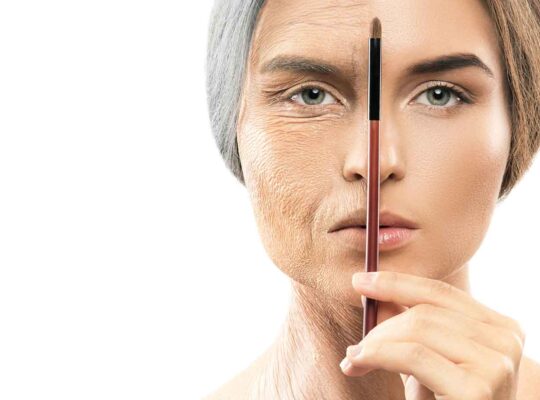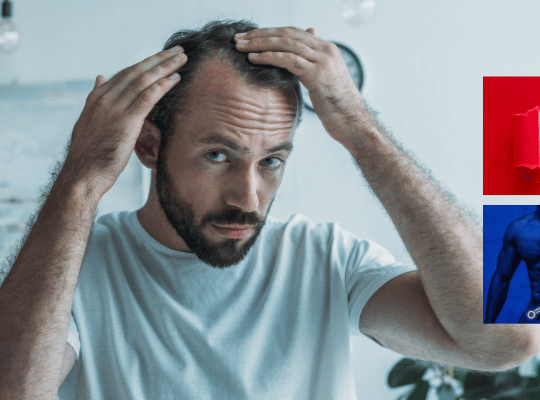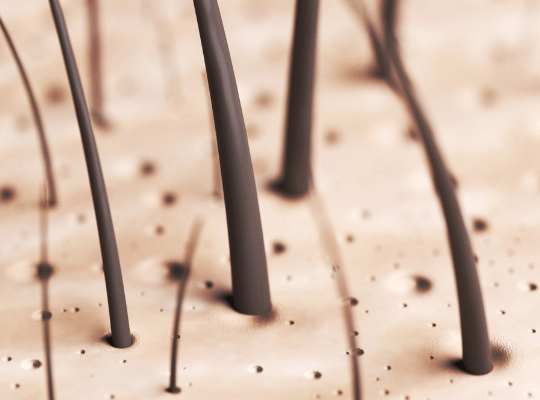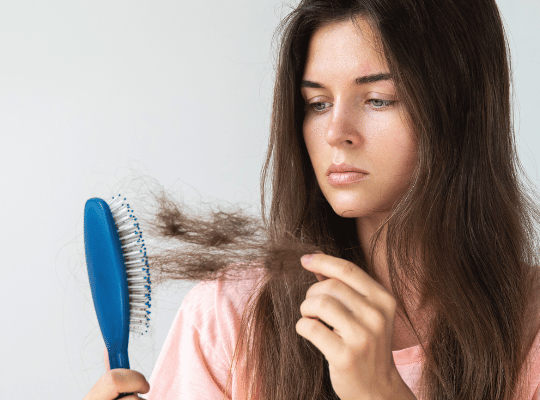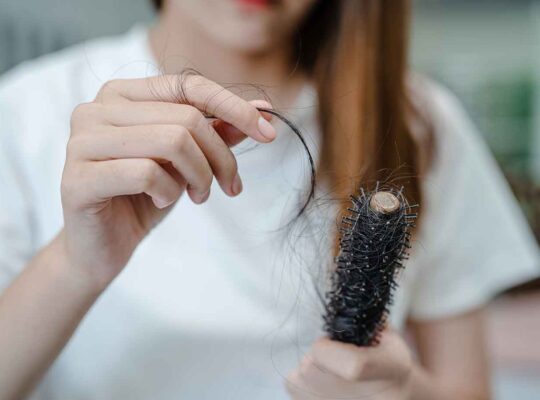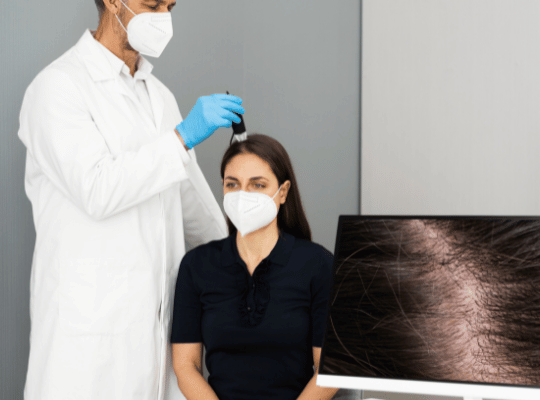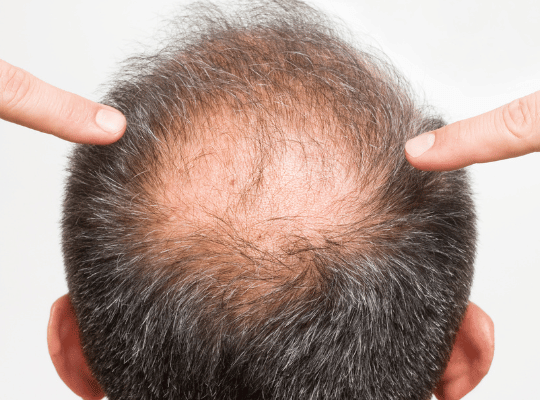What Causes Hair Loss, and What Can You Do About It?
Hair loss is a concern for many people, regardless of age or gender. Whether you’re finding more hair in your brush or noticing thinning spots, it can be upsetting. But here’s the good news: understanding why hair loss happens can help you prevent and manage it better.
In this article, we’ll break down the reasons behind hair loss, including genetics, hormones, and lifestyle choices. We’ll also look at the types of hair loss, and how you can take steps to keep your hair healthy and strong.
Types of Hair Loss
There are several types of hair loss, and each has its own causes and treatments. Here are the most common ones:
Androgenetic Alopecia (Pattern Baldness)
This is the most common type of hair loss and affects both men and women. In men, it usually starts as a receding hairline and bald spots on the top of the head. In women, it often shows up as thinning hair on the top of the scalp. This type of hair loss can start as early as your late teens or early 20s, especially for men, and during menopause for women.
Telogen Effluvium
Telogen effluvium happens when a major life event or stressor causes a lot of your hair to suddenly fall out. This could be triggered by surgery, childbirth, or severe stress. The good news is that this type of hair loss is usually temporary, and your hair should grow back after the stressor is resolved.
Alopecia Areata
Alopecia areata is an autoimmune disorder where your body’s immune system mistakenly attacks your hair follicles. This leads to smooth, round bald patches on the scalp or other parts of the body. While the exact cause isn’t clear, genetics and stress are thought to play a role.
How Genetics Affect Hair Loss
If your parents or grandparents lost their hair, there’s a higher chance you might too. This is especially true for androgenetic alopecia. Certain genes can make your hair follicles more sensitive to a hormone called dihydrotestosterone (DHT), which leads to thinning hair and eventual hair loss.
But don’t worry—just because you have a family history doesn’t mean hair loss is inevitable. By understanding your genetic risks, you can start taking steps early to keep your hair healthy.
Hormones and Hair Loss
Hormones play a big role in hair health. For women, pregnancy, menopause, and thyroid problems can lead to hair loss. For example, during pregnancy, hormone levels rise, which often leads to thicker hair. But after giving birth, these levels drop, which can cause hair to fall out.
Menopause is another time when hormone levels change, leading to thinning hair. Thyroid problems, whether an overactive or underactive thyroid, can also cause your hair to thin because thyroid hormones are important for hair growth.
If you suspect hormones are affecting your hair, it’s important to talk to a doctor who can help balance your hormone levels.
Nutrition and Hair Health
What you eat has a direct impact on the health of your hair. Nutritional deficiencies can lead to hair thinning and loss. Your body needs vitamins and minerals like iron, zinc, vitamin D, and B vitamins to grow healthy hair.
Eating a balanced diet full of fruits, vegetables, lean proteins, and whole grains is essential. Make sure you’re getting enough iron from foods like leafy greens and lean meats, and don’t forget about zinc, which you can find in nuts and seeds. Vitamin D is also important, so get some sunlight and eat fortified foods. B vitamins are found in whole grains and dairy products.
By giving your body the right nutrients, you’re supporting hair growth from the inside out.
Environmental and Lifestyle Factors
Your environment and lifestyle choices can also affect your hair. Pollution and UV radiation from the sun can damage your hair, making it weak and brittle. Pollutants can build up on your scalp, leading to inflammation, while UV rays can break down your hair’s structure.
How you treat your hair matters too. Smoking can reduce blood flow to your scalp, making it harder for your hair to get the nutrients it needs. Overexposure to the sun without protection can dry out your hair, and using too many styling tools or products can lead to breakage.
To protect your hair, make sure you wash it regularly to remove pollutants, use UV protection products, quit smoking, and limit the use of heat styling tools.
Stress and Hair Loss
Stress doesn’t just affect your mind; it can also impact your hair. Chronic stress can lead to conditions like telogen effluvium and alopecia areata. When you’re stressed, your body produces more of a hormone called cortisol, which can disrupt your hair’s growth cycle and cause it to fall out.
Managing stress is important for keeping your hair healthy. Regular exercise, meditation, and getting enough sleep are great ways to reduce stress. If you’re struggling, don’t hesitate to seek help from a counselor or try stress management courses.
How to Prevent and Manage Hair Loss
Preventing and managing hair loss requires a combination of treatments and lifestyle changes. Here are some steps you can take:
- Early Intervention: If you have a family history of hair loss, consider starting treatment early with topical treatments like minoxidil or oral medications like finasteride.
- Hormone Balance: If your hair loss is related to hormones, talk to your doctor about hormone replacement therapy or other treatments.
- Nutritional Support: Consider taking supplements if you’re not getting enough vitamins and minerals from your diet.
- Professional Treatments: Advanced treatments like platelet-rich plasma (PRP) therapy and low-level laser therapy can help if you’re looking for more aggressive options.
Conclusion
Hair loss is influenced by many factors, including genetics, hormones, nutrition, and lifestyle choices. Understanding the causes of hair loss empowers you to take proactive steps to maintain healthy hair. Remember, hair loss isn’t just a cosmetic issue; it can affect your self-esteem and overall well-being. By taking a holistic approach that includes medical advice, lifestyle changes, and stress management, you can improve your hair health and regain confidence.
If you’re dealing with hair loss, don’t hesitate to consult a professional who can guide you through the best treatment options. Share your experiences, seek advice, and take charge of your hair health today.


